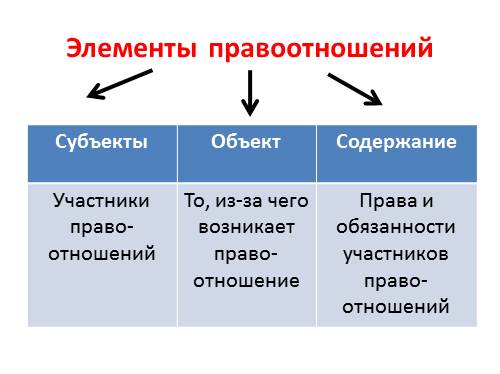What is unjust enrichment?
If we leave aside the emotional and ethical side of the issue, which exist in any conflict situation, then the dry lines of the law tell us the following. A person who, in the absence of the grounds provided for by current legislation, has acquired or saved property at the expense of another person is considered to have become unjustly enriched. What does this mean?
Three main points can be identified, which together make it possible to define one or another group of facts as a situation of unjust enrichment.
- A person (in this case, the “person” can mean either an individual or an organization, let’s call it the “Acquirer”) acquired funds or property without providing consideration. That is, it received an objective opportunity to use and dispose of these funds, without compensating the other party in any way. This also includes situations where this person did not acquire property from someone, but saved property or money that, in the normal development of the situation, he should have lost.
- The person, let’s call him “Victim,” from whose possession and use the above-mentioned property was removed, objectively lost this property. That is, the Acquirer did not just receive some ownerless property or managed to enrich himself by creating something out of nothing, but received precisely the property of the Victim. Or did not transfer to the Injured the property that should have been transferred to him in the normal course of events.
- The third and most important point, which most often is a stumbling block in legal disputes regarding unjust enrichment, is that there should not be any agreement or other legal basis between the Acquirer and the Victim on which this property should have been transferred by the Injured to the Acquirer. Such grounds may be acts of government bodies, court decisions, etc. If such an obligation existed by force of law, then the transfer or saving of property is challenged on other legal grounds, depending on the situation. Unless, of course, there are grounds for such a challenge at all.
Types and regulations
Unjust enrichment is classified into types depending on:
- method of receipt;
- the nature of the legal relations that gave rise to it.
According to the method of receipt it is divided into:
- Saving is the preservation by a person of valuables or property, which does not entail their reduction in another person. For example, a bank mistakenly debits funds from the account of one organization using a payment order from a completely different company; the tenant continues to illegally reside in the apartment after the termination of the lease agreement;
Saving concept - acquisition - the receipt of valuables or funds without legal grounds, resulting in their loss or reduction from the injured party. For example, when, due to flooding or man-made factors, construction materials belonging to one enterprise end up on the territory of another; the co-borrower mistakenly pays the debt in a larger amount, etc.
Depending on the nature of the legal relationship, this kind of enrichment occurs as a result of:
- excessive contractual overpayments deliberately initiated by the acquirer (excessively high fines, commission fees, etc.);
- repayment of debts in enforcement proceedings, when the debtor fulfills obligations in an amount greater than the claimant is entitled to;
- execution of public contracts when the seller sells goods at a deliberately inflated price;
- illegally granted a tax deduction for personal income tax to a person who does not have the right to receive it.
Thus, such enrichment arises from both contractual and non-contractual obligations.
Examples of unjust enrichment
Example 1: Leprechaun LLC transferred a certain amount of money to the account of Tourist LLC by mistake. Let's say an accountant was daydreaming about a vacation and confused the details of two legal entities. At the same time, there are no agreements or other obligations between Leprekon LLC and Tourist LLC. So, we have all the signs of unjust enrichment: the Acquirer received the money, the Victim lost it, did not receive any consideration (which is natural, since there is no agreement between them), and there are no legal grounds for transferring this amount. Accordingly, Tourist LLC, which was delighted with the sudden “profit,” from the point of view of the law, enriched itself completely unlawfully and, having become sad, must return these funds to Leprechaun LLC. In this case, it is recommended to be sad about the loss of a sudden acquisition no longer than a demand for a refund is received, in order to avoid the inevitable legal consequences of such non-return. Ideally, funds acquired unjustifiably should be returned immediately after discovery of the fact of their acquisition.
Example 2: Unfulfilled Hopes LLC entered into an agreement with Optimist LLC for the purchase of equipment on an advance payment basis. Unfulfilled Hopes LLC transferred a certain amount of money to Optimist LLC under this agreement, having fully fulfilled its obligations, and began to expect the shipment of the equipment. But due to some objective reasons or someone’s banal negligence, payment under this agreement turned out to be transferred twice. That is, the Buyer received the full amount of payment for his goods twice. It turns out that, it seems, the funds were transferred to one person at the expense of another and there is an agreement for this, as a result, the Victim sadly watches the shipment of twice-paid equipment, which turned out to be “golden”, and nothing can be done about it. However, this is not true. Since under the above agreement the amount of payment has already been transferred in full, the overpaid funds, although formally transferred within the framework of this agreement, nevertheless fall into the category of “unjust enrichment” and must be immediately returned to the Victim.
Examples of cases from judicial practice Below are links to examples of cases on the recovery of unjust enrichment from our own judicial practice. Here you can read the descriptions of cases and court decisions on them: return of unused advances, return of money transferred by mistake.
Conditions of occurrence
The primary condition under which illegal enrichment arises is the lack of authority by the acquirer to take possession of goods at someone else’s expense or their subsequent loss. Powers are understood as legal facts that give the subject the right to claim money and other material assets.
As in any other type of obligatory legal relationship, there are elements in unlawful enrichment:
- object - the behavior of both parties, resulting in the loss of property for one party and its acquisition for the other;

Elements of legal relations - the subject is the acquirer and the victim;
- maintenance - the ability of the victim to demand transfer and the obligation of the acquirer to transfer property that does not belong to him, which is the subject of unlawful enrichment. If it is impossible to transfer in kind, the acquirer compensates the victim for the cost of the items at the time of acquisition and the loss resulting from their loss.
To summarize, it must be said that the obligation from illegal enrichment arises under such conditions as:
- the presence of elements of the legal relationship - the acquirer, the victim and specific content;
- material gain for one of the parties;
- lack of grounds for obtaining property or their further loss.
Features of recovery of unjust enrichment
First of all, if the dispute is considered through arbitration proceedings, we must not forget about the pre-trial stage of dispute resolution. The Arbitration Procedural Code classifies disputes regarding the recovery of unjust enrichment as a category of cases in which pre-trial settlement is mandatory (part 5 p. 4 of the Arbitration Procedure Code of the Russian Federation). After filing a claim, if a response is not received within 30 days, you can go to court. If the answer is received, but it is unsatisfactory for the Victim, the pre-trial procedure is still considered to be complied with.
It does not matter whether the unjust enrichment of the Acquirer was the result of his actions, the activities of the Victim himself or some third parties, or occurred against their will. Whether there was someone’s intent or not is not important; what matters is the fact of enrichment and the absence of legal grounds for it.
If it is not possible to return in kind the property unlawfully saved or received, in this case the Acquirer must reimburse the Victim for the full cost of this property at the time of its acquisition.
Return of property in kind and impossibility of its return
According to the rules of Art. 1104 of the Civil Code of the Russian Federation, the recipient is obliged to return the property in kind to the owner. But what to do when this is impossible to do? For example, the user has lost or damaged property. In this case, he is obliged to return the enrichment in monetary terms, or otherwise compensate for the value of the property (Article 1105 of the Civil Code of the Russian Federation).
For example, a resident of Rameno gave a car to a friend for temporary use. When the lease expired, the latter refused to return the car. The owner went to court and demanded that the tenant return the car. The judge granted the claim. However, the bailiff never found the car. Apparently, the tenant dismantled it for parts or sold it. Then the owner went to court again and demanded compensation for the cost of the lost property. The judge also satisfied these demands of the owner of the car (decision of the Ramensky City Court of the Moscow Region in case No. 2 - 3121/2018 dated July 30, 2018).
If the location of the property is known, and the problem is only that the counterparty refuses to return it, putting forward illegal demands, then the court issues a verdict on the need to return it to the owner. Next, the bailiffs ensure the execution of the judicial act (decision of the Court of Justice of the Chuvash Republic - Chuvashia in case No. A79 - 1671/2017 dated 09/05/2017).
Collection procedure
So, what should you do if you want to return property that belongs to you? First of all, as mentioned above, it is worth sending a claim in which you indicate to whom it is being sent, from whom, what property and in what volume you want to receive and why you think that the Acquirer should transfer this property to you. You must also attach documents supporting your claims to your claim. After submitting your claim, you must wait. If you receive a response within 30 days, then you should proceed further depending on how satisfactory it is for you. If your requirements are met, the issue can be considered closed. If not, or there is no response, then you need to go to court with a claim for unjust enrichment. Please note that if you contacted the Acquirer in another way - by phone, through instant messengers, or met in person - it is still worth following the formal claim procedure before going to court in order to avoid problems with proving compliance with this procedure.
conclusions
Now it's time to draw some conclusions. First of all, the recovery of unjust enrichment by the court is considered the restoration of a violated right, but not a measure of liability. Therefore, the courts collect it in the amount in which the right of the victim was violated. At the same time, the collection of interest in such cases also aims to restore the violated right.
On the other hand, despite established practice and detailed regulation, some articles still cause controversy among lawyers. For example, Article 1107 of the Civil Code of the Russian Federation declares that a person who illegally owned property must return to the owner not only the income received, but also those that he should have received . And this formulation contradicts the very idea of restitution . After all, with unjust enrichment, what is returned is exactly what was received and could not have been obtained . What if such income was not received or is impossible to obtain in principle? An attempt to calculate it will give the victim privileges over the acquirer. Therefore, courts practically do not use it in their practice. Otherwise, these are quite working norms that are successfully applied by Russian judges.
When can unjust enrichment not be recovered?
Of course, the law also provides for cases when it is not possible to return unjust enrichment.
- Property transferred even in fulfillment of any obligation, however, before the deadline for fulfillment, nevertheless, is not subject to return. In other words, if an obligation took place, therefore, the transfer of property in accordance with it indicates the existence of the will of the Victim for such a transfer, albeit outside the time frame of this obligation. In this case, it is impossible to refer to the fact that the transfer of property is outside the scope of the obligation.
- Likewise, property that was transferred in fulfillment of an obligation after the expiration of the limitation period is not returned. Accordingly, if the person obligated to transfer the property transferred it even outside the period during which this property could be demanded from him, this property cannot be returned.
- Payments and payments are also not returned - “wages, pensions, benefits, alimony and other sums of money provided to a citizen as a means of subsistence” - but only if there is no dishonesty on the part of this citizen and no accounting error.
- Also, sums of money and other property provided in fulfillment of a non-existent obligation are not returned if the Acquirer proves that the Injured knew about the absence of this obligation or provided the property for charity. In the case of “charity”, the appropriate confirmation will be the relevant contract. In other words, again, when recovering unjust enrichment, it will be necessary to prove that the amount was transferred to the Victim knowingly.
When is there no point in going to court?
We warn you that it does not make sense to contact the justice authorities in all cases. In some situations, such an approach will not give the desired result.
5 cases incompatible with enrichment return:
- the plaintiff knew that the guilty person had no reason to use the property;
- the plaintiff gave money or property to a charitable organization;
- The organization's accountant made a mistake and incorrectly calculated wages, benefits, and other payments to the employee. In this case, the accountant is not to blame for incorrect calculations;
- the plaintiff gave the property to fulfill duties, but made the transfer before a certain period;
- the property was transferred to fulfill the obligation after the time for filing an application with the court had expired.
In other cases, we recommend that you seek protection of rights in the courts.
When civil rights and responsibilities arise
Civil obligations and rights arising from illegal enrichment arise as a result of such legal facts as:
- illegal acquisition or saving of funds belonging to third parties arising from civil transactions;
- decisions of civil, arbitration, administrative courts establishing rights and obligations;
- creation or acquisition of movable and immovable things;
- invention of industrial designs, creation of musical, literary and other products of intellectual activity;
- causing damage to the injured party.
The list of legal facts is not exhaustive, since the legislator gives subjects the opportunity to independently create various legal relations for themselves.
Generalization of practice
Tsvetkova S.A., Valeev M.M., Gongalo Yu.B.
Peculiarities of consideration of disputes related to the application of the provisions of the Civil Code
Russian Federation on unjust enrichment
Liabilities due to unjust enrichment are a special type of obligations, the necessary conditions for the occurrence of which are the following:
1) acquisition or saving of property at the expense of another person, i.e. an increase or preservation of the same amount of property on one side was the result of a corresponding decrease in property on the other side;
2) the acquisition or savings occurred without the grounds provided for by law, other legal acts or transaction.
The question of the place of the institution of unjust enrichment in the legal system and the relationship between the requirements for unjust enrichment and other requirements is traditionally a controversial one.
It seems that the conditional obligation is universal for all cases when one person acquires (saves) property at the expense of another without a legal basis.
In this sense, the rules on unjust enrichment are subject to application whenever the relevant relations are not regulated by law, other legal act or agreement.
If there are special rules (established by the rules on tortious obligations, on vindication, on certain types of contracts), priority is given to these rules, while the rules on unjust enrichment can be applied only to the extent that the relevant relations are not regulated by them.
Unjust enrichment appears in the form of unjust acquisition (receipt of undue property, which may be a consequence of the fulfillment of a non-existent obligation, the fulfillment of an obligation in excess of the amount payable or the amount of property to be transferred, the fulfillment of a terminated obligation, etc.
) or unjust savings (most often, savings are formed as a result of the fulfillment of an obligation for the debtor by a third party in the absence of his obligation to fulfill the debtor’s obligation.
Both forms of unjust enrichment can result from both actions (whether rightful or wrongful on the part of any person) or events.
In the practice of the Arbitration Court of the Sverdlovsk Region, the rules on unjust enrichment are most often applied when collecting what has been performed under an unconcluded contract. Refusal to recover unjust enrichment, as a rule, is associated with the establishment of contractual relations existing between the parties.
I. Presence of unjust enrichment
1. Actions in pursuance of an unconcluded contract give rise to an obligation arising from unjust enrichment
(case No. A60-4726/2005, N A60-7195/05, N A60-20485/04)
OJSC “X” filed a lawsuit against EMUP for the recovery of 166,508 rubles, including 156,023 rubles, which constituted the amount of unjust enrichment, and 10,484 rubles. interest for the use of other people's funds, believing that the funds were written off by EMUP without the grounds established by law and the contract.
The court decision partially satisfied the claim. The amount of unjust enrichment and interest in a smaller amount was recovered from EMUP.
By Resolution of the Federal Arbitration Court of the Ural District dated June 20, 2005 N F09-1727/05, the decision was left unchanged due to the following.
Based on the agreement between the plaintiff and the defendant, EMUP, which performs intermediary functions, assumed the obligation to provide OJSC “X” with the opportunity to use public utilities, based on the conditions established by the public service providers.
According to the documents in the case, utilities were provided between January and February 2004; due to the lack of metering devices, payment was made on the basis of invoices, based on the estimated quantity of services consumed.
In June 2004, EMUP, in pursuance of the contract with a payment request, made a direct debit from the current account of OJSC “X” of 156,023 rubles. 18 kopecks to pay for utility services provided in January - February 2004.
By decision of the arbitration court in another case, the agreement on the provision of public services between the plaintiff and the defendant was declared not concluded.
Taking into account the decision of the arbitration court that has entered into legal force, which has prejudicial significance for the consideration of this dispute, which established that the agreement between the plaintiff and the defendant is not concluded, the court’s conclusion that the defendant’s enrichment was unfounded was recognized by the cassation court as justified.
A similar decision was made in case No. A60-7195/05 (left unchanged by the decision of the Federal Arbitration Court of the Ural District dated August 18, 2005 No. F09-2465).
Source: https://ekaterinburg.arbitr.ru/files/userfiles/CT/pr30.htm






